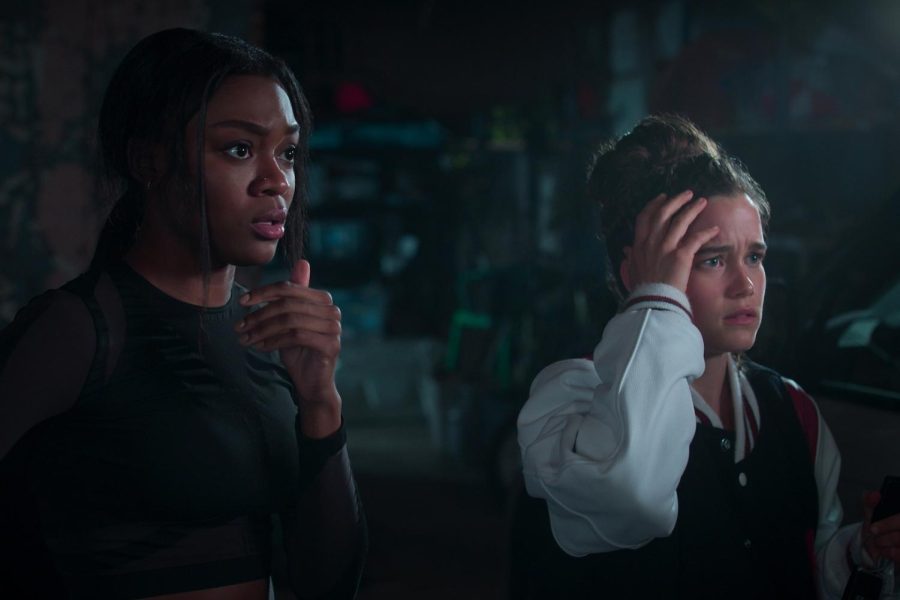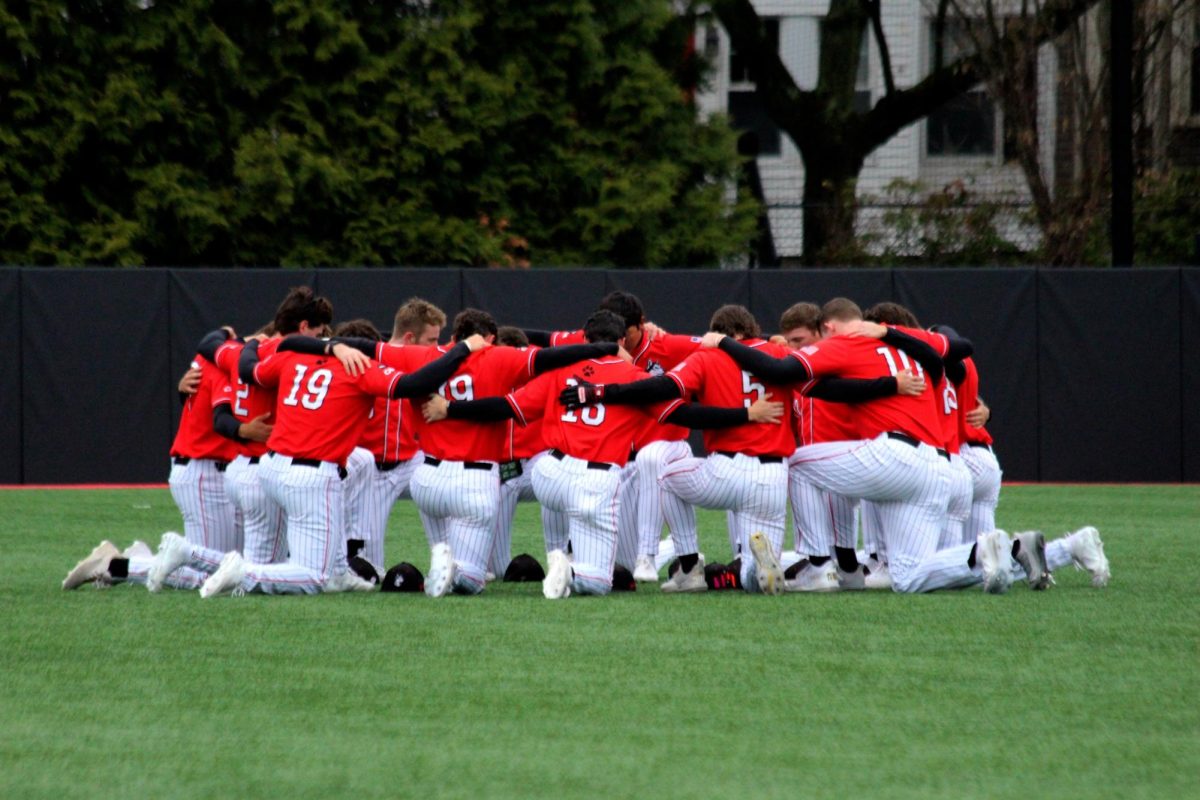Column: Major studios’ strike against sapphic stories cannot be ignored
When Netflix announced the cancelation of “First Kill,” fans voiced their criticism online. Courtesy of Netflix. © 1997-2016 Netflix, Inc. All rights reserved.
September 28, 2022
Many viewers who identify as queer find it hard to relate to characters in film and television, especially when popular sapphic projects continue to be cancelled, scrapped and pulled away from big screen attention.
Recently, audiences saw potential for a sapphic series that could stand the test of time — and viewer ratings — in Netflix’s “First Kill,” which premiered on the platform June 10 and revolves around two lesbian protagonists. Based on a 2020 short story, “First Kill” centers around Juliette (Sarah Catherine Hook), a vampire ready to make her first kill, and Calliope (Imani Lewis), a vampire slayer. Over the course of their respective missions, the fated opponents fall hard for each other in a tragic, doomed romance.
Although the show cleared 100 million hours viewed in its first month on Netflix with enough buzz and viewership to break into the platform’s “Top 10” list, production was canceled after just one season.
Despite mixed critical reviews, “First Kill” amassed a devoted fanbase that expressed confusion and frustration over the decision to cancel the series. Following the news, many fans pointed out that studios and streaming services seem to hold queer projects, especially ones that star Black actors and other actors of color, to a higher standard than projects that follow white, heteronormative stories.
This summer, viewers also saw the overwhelming success of “Heartstopper,” another queer series that premiered on Netfllix in April. Like “First Kill,” “Heartstopper” trended in Netflix’s Top 10 alongside shows like “Stranger Things” and collected millions of hours of viewership and a similarly massive fanbase. When fans heard of Netflix’s premature cancellation of “First Kill,” many looked to “Heartstopper,” which attracted half of the viewership of “First Kill” but received two more seasons.
For some fans of “First Kill,” what made “Heartstopper” different was that it centers around two white LGBTQ+ men. “First Kill” is a sapphic story, which is underrepresented in media, and more likely to be on the receiving end of studio cancellations. Hollywood has a habit of accepting queer stories when they follow white men — like the movie “Love, Simon” that saw immense success in the box office — but the second a leading love story resembles a sapphic or lesbian relationship, studios and streaming platforms have a habit of shunning it and shutting it out.
“First Kill” isn’t the first time a major studio has axed a show centering around a lesbian main character and stopping stories of “woman-loving-woman,” or WLW, from being told. On Netflix alone, titles like “I Am Not Okay With This,” “Everything Sucks” and “Sense8” met the same fate as “First Kill.”
For those who identify as WLW, finding representation is no easy task in a film and television industry that seems hostile to their stories. Sapphic media’s ongoing public battle for airspace on streaming platforms sends a message of continued exclusion, and even rejection, to sapphic audiences.
A 2021 survey by The Trevor Project, an LGBTQ+ crisis-prevention organization, found that 42% of LGBTQ+ youth seriously considered attempting suicide in the past year, and 94% reported that recent politics had negatively impacted their mental health. In the United States, legislators have introduced a barrage of anti-LGBTQ+ bills this year, many of which target transgender youth. This makes representation in popular media — a historic pillar of advancing LGBTQ+ rights and visibility — all the more essential.
Adding this cancellation to the long list of stifled sapphic representation is a clear sign that Netflix — and Hollywood as a whole — needs to do better. Leaders in film and television must be willing to tell stories about everyone, not just white, cisgender heterosexual characters. A multibillion dollar streaming service like Netflix has the power to pull representation away from those who have fought for it, but it also has the — thus unfulfilled — capacity to lend its vast streaming space to those voices. Everyone deserves to have an opportunity to be seen and heard and to have their story told.







